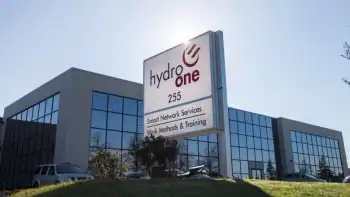Hydro One included in potential asset sale
By Toronto Star
Electrical Testing & Commissioning of Power Systems
Our customized live online or in‑person group training can be delivered to your staff at your location.

- Live Online
- 12 hours Instructor-led
- Group Training Available
Liberal insiders say the study urges the government to meld the Liquor Control Board of Ontario, Ontario Power Generation, Hydro One, and the Ontario Lottery and Gaming Corp. into one “super corporation.”
It proposes 20 per cent of “SuperCorp” would then be sold – at least half to favoured institutional investors, such as the Ontario Teachers’ Pension Plan and Ontario Municipal Employees Retirement System, with the remainder available to individuals in an initial public offering.
“If cabinet doesn’t make a decision soon there is not time to do this if they do make a decision quickly, there is,” a senior Liberal said.
Behind the scenes, McGuinty is pushing for the bold initiative to help bankroll Liberal promises in the 2011 election—including an expensive, but politically helpful plan to reduce university and college tuition fees.
“We want to the take the proceeds out of assets we already own and invest them in other assets to make some legacy investments,” said the Liberal.
The white paper, prepared after the province paid $200,000 to CIBC World Markets and Goldman Sachs to study the value of Crown assets, acknowledges the complex structure of a new company, encompassing three nuclear power plants, 29,000 km of transmission lines, 610 liquor stores, as well as casinos, slot machines, and lotteries.
“It’ll be a challenge to get a shareholders’ agreement that meets the needs of the investor,” admitted one proponent, noting Queen’s Park would maintain regulatory oversight over the super corporation while ceding “fiduciary control” to the minority shareholder.
“SuperCorp has to be run as a business, otherwise investors won’t want anything to do with it. But we are the regulator for electricity generation and transmission, booze sales, and gaming so we would keep our authority for the public safety and social responsibility aspects of it,” the source said.
The government is seeking a tax ruling from Ottawa to confirm the wisdom of creating a conglomerate instead of selling off parts of the Crown corporations individually.
“There’s tax and accounting reasons—if you do them separately there’s tax leakage to the feds,” said someone familiar with the proposal.
Selling 20 per cent of the business, which the Liberals hope is a small enough amount to be palatable to public-sector unions and others opposed to privatization, could just be the first step.
“You could well sell another 20 per cent in three years’ time and get even more for it,” said the person familiar with the scheme.
Sources say David Livingston, the influential president and chief executive officer of Infrastructure Ontario, the provincial agency that oversees the building of roads, hospitals, bridges, courthouses, and water systems, is being touted to head the new $60-billion mega-corporation.
On March 6, the Star revealed the privatization effort was afoot as part of the LiberalsÂ’ Open Ontario plan for governing through to the October 2011 vote.
The proposal is expected to be discussed as soon as next Wednesday when the cabinet convenes in a summer retreat at York UniversityÂ’s Glendon College.
But there is resistance among some ministers who fear the government has already bitten off more than it can chew with the July 1 implementation of the 13 per cent harmonized sales tax, which will raise levies on one in six goods and services, including gasoline.
“It’s a risky thing to do going into an election cycle,” said one high-ranking Liberal.
“I have a lot of confidence in Livingston, but that doesn’t mean this cake is baked,” said the Liberal.
“And once you open the door to this, how soon is it before future governments are selling off the remainder?”
Another skeptical official warned of numerous hurdles to overcome before any sale could proceed—including the fact some institutional investors are prohibited from putting money into gambling businesses.
“Unions are already telling government they will do everything to fight it,” said the Liberal, predicting major headaches for McGuinty.
“Would SuperCorp have the right to fire 30 per cent of LCBO staff? How about outsourcing or breaking a union in the next contract negotiations? Can they open a new casino in Toronto?” said the skeptic.
“Oh, and what happens when one of a million companies who haven’t been selected as a lucky … pension fund, but are interested in buying one of the four Crown corporations, comes out and says ‘We would have paid more?’”
Mindful of such criticism, McGuinty is privately assuring doubters that, unlike the failed scheme by the previous Progressive Conservative government to sell Hydro One in 2002, there would be no outright sale of Crown holdings.
That would make it different from the ToriesÂ’ controversial 1999 liquidation of Highway 407 for $3.1 billion, which led to soaring tolls for drivers and a lack of government control.











